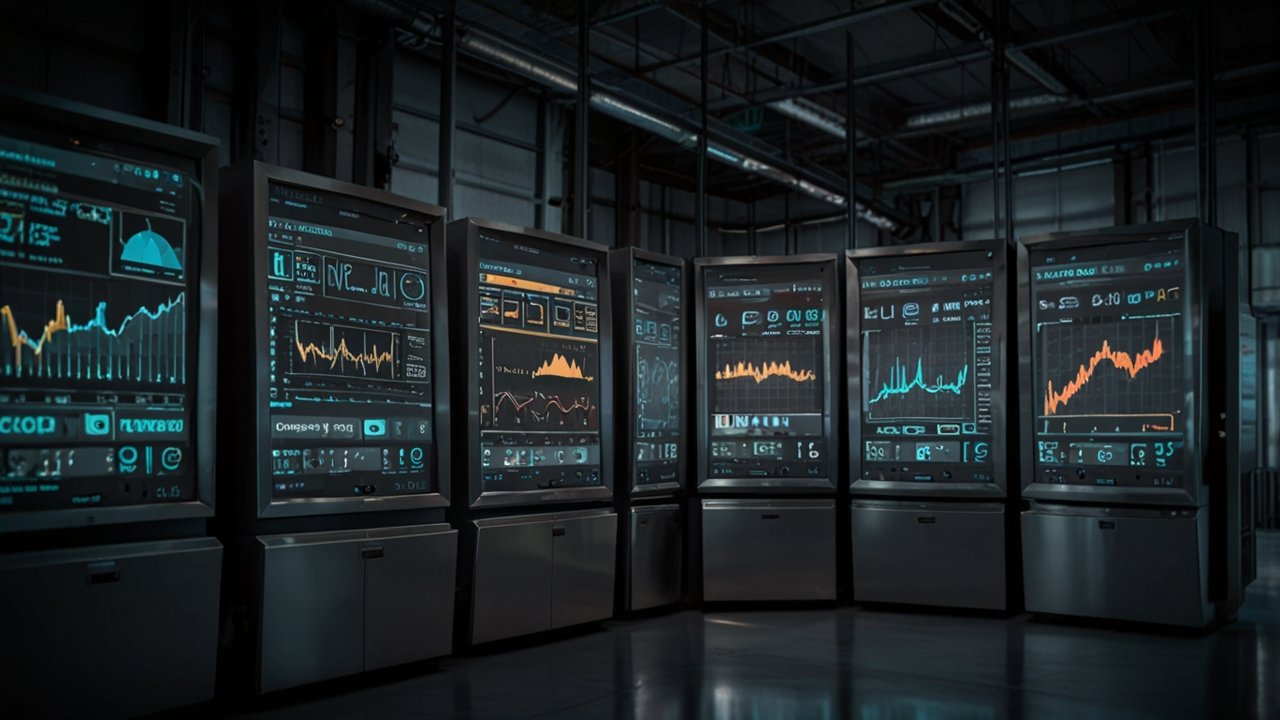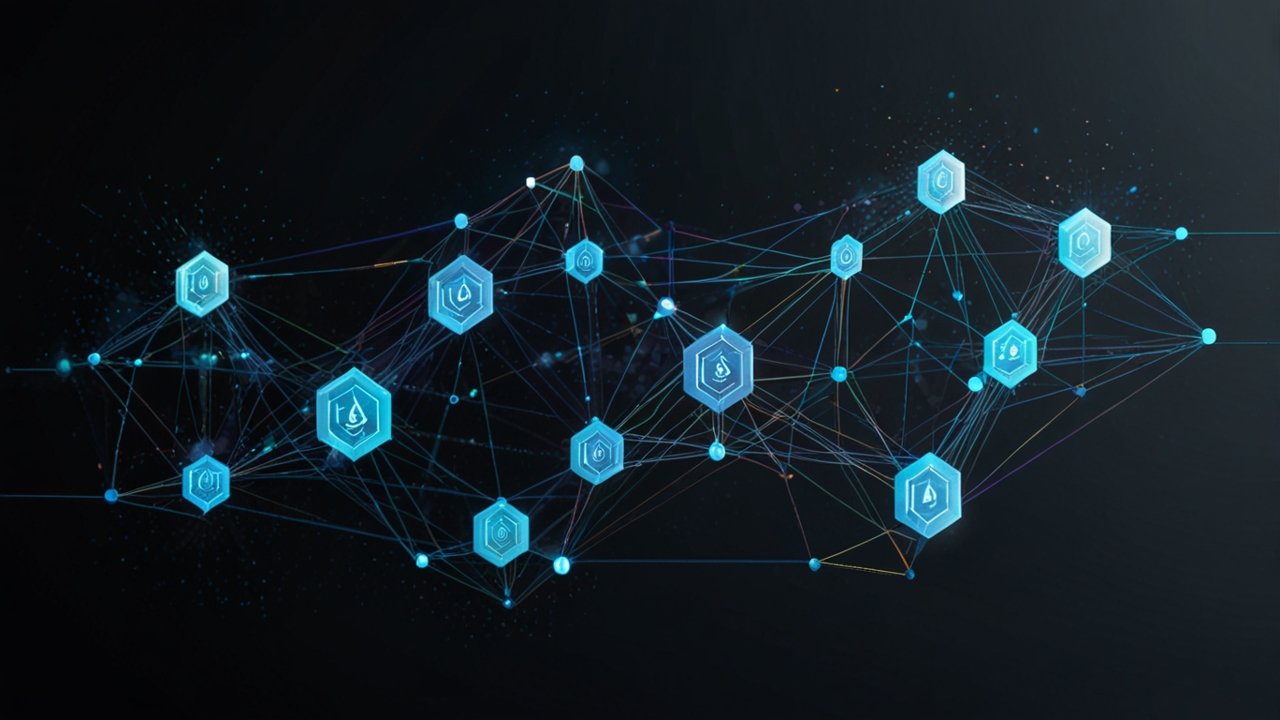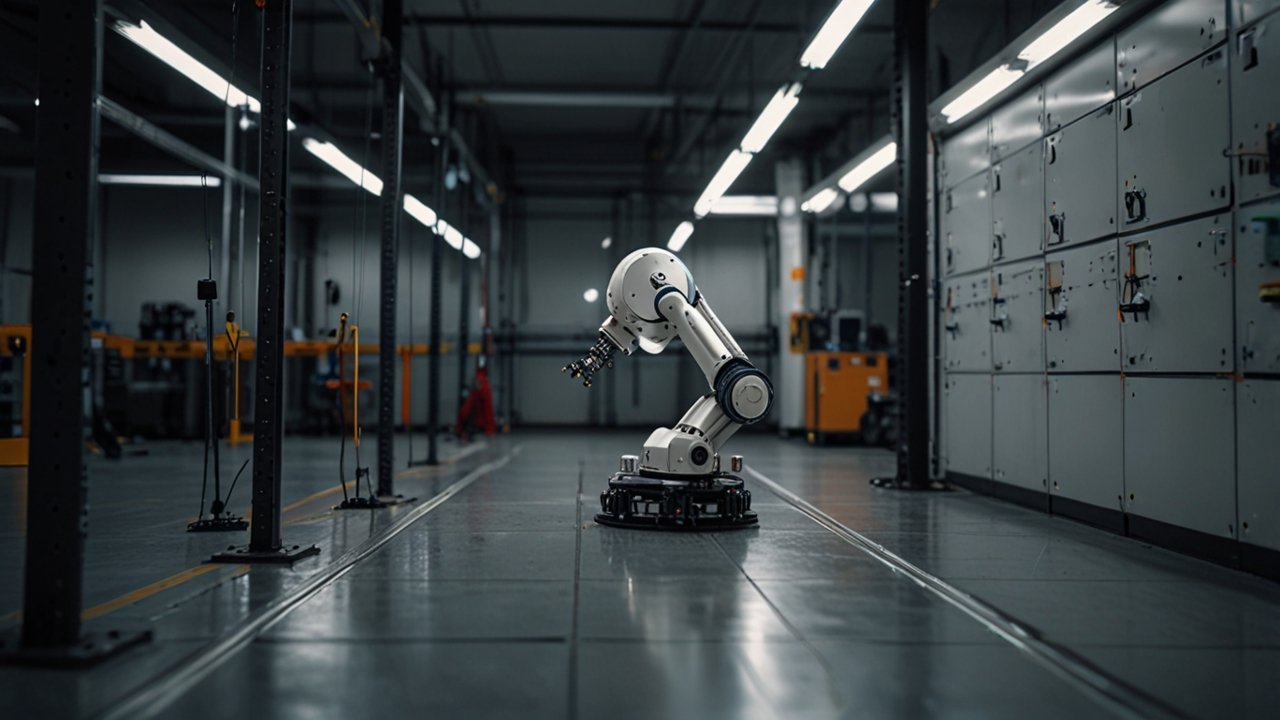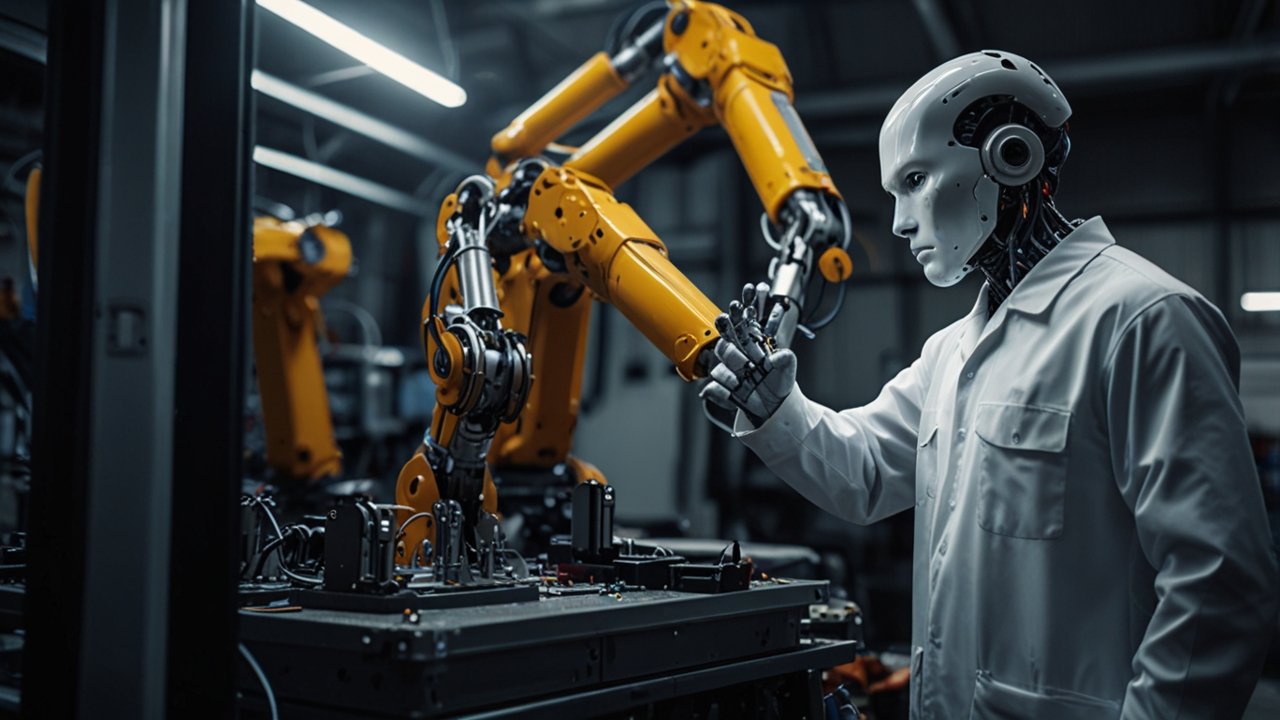Domain Specific AI: 5 Specialization Features
Artificial intelligence has evolved tremendously over the decades. In this article, we explore how specialized systems have developed to address targeted needs. You will learn how these systems are reshaping industries and making processes more efficient.
This article is designed for anyone curious about the transformation of technology in the modern age. Our discussion emphasizes the evolution, current methodologies, and future trends in these systems. Enjoy a friendly dive into technological innovations.
At the heart of our exploration is the integration of intelligent tools into daily operations. Whether you are a tech enthusiast or a beginner seeking insights, our clear explanations will keep you engaged. Discover opportunities that have emerged through innovation in this exciting field.
📑 Table of Contents
- Introduction to Domain specific AI
- Evolution and History of Domain specific AI
- How Specialized AI Enhances Domain specific AI Cutting-Edge Technologies
- Industry AI Systems and Their Applications in Domain specific AI Innovative Solutions
- Real-World Case Studies of Domain specific AI Emerging Trends
- Targeted Intelligence in Modern Domain specific AI Solutions
- Future Trends: Custom AI and Beyond for Domain specific AI
- Reimagining Possibilities with Domain specific AI
- FAQ
- Conclusion
Introduction to Domain specific AI
Overview and Significance Artificial Intelligence
The field of intelligent systems has grown beyond general-purpose models to include advanced, narrow-focused implementations. In recent decades, researchers have leveraged these systems to solve specialized problems. Their development reflects a deliberate move towards improved accuracy and tailored solutions.
Historically, these systems began as experiments in the 1950s. Early models were simplistic and aimed at replicating human thought processes. Today, through refined algorithms and extensive data usage, they perform tasks with great precision.
This progression highlights necessary advancements in computing power, algorithm design, and data processing. Technology continues to evolve at an astonishing rate, consistently raising the standards of performance. Does this evolution resonate with the challenges you face in your work?
Key Components and Integration
Modern intelligent systems integrate various technologies such as natural language processing and computer vision. They are carefully adapted to serve specific industry demands. As these systems mature, they are seamlessly integrated into existing frameworks, ensuring smooth operations.
Integration with cloud and edge computing platforms further enables real-time deployments across sectors. These platforms provide the necessary scalability and computational support essential for robust performance. Researchers have demonstrated that early adoption can significantly optimize business processes.
For more information on integrating these advanced tools, check out a detailed study on IBM future trends. How might improved integration benefit your daily operations?
Evolution and History of Domain specific AI
Milestones and Technological Shifts Automation Technologies
The journey of these intelligent systems began in the 1950s with pioneers like Alan Turing. Early systems were general-purpose and later evolved into more specialized models. Major milestones include the emergence of expert systems in the 1970s.
These expert systems, exemplified by projects such as MYCIN, showcased the potential of rule-based logic. Their targeted design laid the groundwork for the evolution of modern intelligent systems. In 1997, when Deep Blue defeated Garry Kasparov, it highlighted the capabilities of focused computational intelligence.
Innovative systems later evolved to utilize machine learning, which improved performance in complex areas like speech recognition. For more details on historical progress, see the TechTarget timeline. Does this historical journey inspire a new perspective on innovation?
Data-Driven Developments and Deep Learning
By the 2000s, the availability of large-scale data and increased computing power catalyzed performance improvements. Deep learning, in particular, revolutionized these systems. Enhanced training on sector-specific datasets allowed models to excel in specialized tasks.
Advances in graphics processing units paved the way for complex neural network computations. This transformation enabled intelligent systems to be deployed in healthcare, finance, and retail. These developments underscore how data-centric approaches have redefined capabilities.
Researchers have noted that accuracy improvements reached up to 94% in disease detection under certain conditions. For further insights into these developments, visit freeCodeCamp history. How do you see data-driven approaches influencing future innovations?
How Specialized AI Enhances Domain specific AI Cutting-Edge Technologies
Tailored Training and Model Customization
Specialization in intelligent systems revolves around focused training on industry-specific data. This process ensures that the models are well-calibrated to address unique challenges. By tailoring the training, these systems achieve higher accuracy and specificity.
For example, in the healthcare domain, specialized models have achieved up to 94% accuracy in diagnosing eye diseases. The adoption of customized algorithms for risk prediction in finance has shown an improvement of 90% accuracy. Such achievements clearly underline the value of targeted model tuning.
Careful data curation and fine-tuning mark a significant departure from early general-purpose systems. This evolution ensures each model performs optimally in its assigned role. Could tailored training methods above inspire enhancements in your projects?
Optimized Workflows and Regulatory Compliance
Seamless workflow integration is critical to the success of advanced intelligent systems. These solutions are engineered to align with existing enterprise systems. They also incorporate regulatory standards like GDPR, HIPAA, and SOX within their framework.
For instance, automated compliance checks in the finance sector have reduced manual workloads significantly. Such integrations not only streamline operations but also mitigate risks. Organizations reporting improved operational performance attest to their efficacy.
Enhanced workflows create measurable reductions in costs and improve patient outcomes in healthcare settings. For more information on regulatory integration trends, visit DaveAI insights. How might these streamlined solutions transform your business processes?
Industry AI Systems and Their Applications in Domain specific AI Innovative Solutions
Sector-Specific Implementations and Benefits
Intelligent systems have penetrated several key industries such as healthcare, finance, e-commerce, and manufacturing. In healthcare, systems like IBM Watson Health and Google DeepMind Health have significantly accelerated and enhanced diagnoses.
Financial institutions use specialized models for fraud detection and risk management, reporting losses reduced by 30%. Similarly, e-commerce platforms benefit from personalized recommendations that boost revenue by up to 35%. Each of these implementations demonstrates clear benefits tailored to industry needs.
By embedding these solutions into everyday operations, companies have reaped both operational and financial rewards. For more information on sector-specific successes, please explore DigitalDefynd case studies. Could these examples spark innovative ideas for your industry?
Technological Integration and Enterprise Readiness
The adoption of intelligent systems relies heavily on integration with existing IT infrastructures. Cloud and edge computing facilitate real-time data processing and deployment across various platforms. This integration enables seamless data flow and robust performance.
Moreover, robust security frameworks ensure compliance with strict industry regulations. Financial services, for example, rely on these integrations to automate compliance while maintaining operational efficiency. Such measures lead to significant improvements in overall productivity.
These applications prove that well-integrated systems can evolve organizational capabilities substantially. For more details on enterprise-level integrations, check additional AI & Automation insights. How do you think enhanced integration could affect your company’s performance?
Real-World Case Studies of Domain specific AI Emerging Trends
Case Study: Healthcare Innovations
Case studies illustrate the profound impact of specialized intelligent systems. In healthcare, IBM Watson Health has significantly improved diagnostic accuracy and treatment planning. Studies indicate improved patient outcomes and streamlined operations, with early cancer detection rates rising by 25% in some cases.
These systems harness vast medical datasets to create personalized treatment plans that reduce healthcare costs. Operational efficiencies are achieved through the automation of routine diagnostic tasks. The success in this sector stands as a testament to the reliability of these systems.
Such examples reveal the potential for broad application across similar industries. For more detailed reviews, refer to a XenonStack case study. Have you experienced similar improvements in your area of work?
Case Study: Finance and E-commerce Success
In the finance sector, specialized systems deliver real-time risk assessments that predict market fluctuations with 90% accuracy. Financial institutions have noticed a reduction in losses by up to 30% thanks to these tailored technologies. Similarly, e-commerce giants like Amazon use automated recommendation engines that contribute up to 35% of their revenue.
These case studies underscore how intelligent systems drive both profitability and efficiency. Implementations have led to enhanced compliance, reduced fraud, and dynamic inventory management. Such success stories provide robust evidence of the practical benefits of these systems.
For more information on these findings, visit the Simplilearn applications page. Do these real-world examples spark ideas on how you might adopt such systems?
Comprehensive Comparison of Case Studies
| Example | Inspiration | Application/Impact | Region |
|---|---|---|---|
| IBM Watson Health | Medical datasets | Enhanced diagnostics; 94% accuracy | Global |
| Google DeepMind Health | Neural networks | Faster diagnoses; 31% improvement | Global |
| Risk Management Models | Financial data | 30% reduction in losses | Global |
| Amazon Recommendation Engine | User behavior | 35% revenue contribution | Global |
| Predictive Maintenance Systems | Sensor analytics | Reduced downtime; improved productivity | Europe, Asia |
Targeted Intelligence in Modern Domain specific AI Solutions
Emergence of Focused Algorithms
The recent wave of intelligent systems emphasizes algorithms built to fulfill specific functions. Engineers develop such solutions to address critical operational challenges. This focused approach is evident across sectors ranging from diagnostics to financial management.
Innovative models have been designed to sift through large amounts of data to provide predictions with remarkable accuracy. The integration of sensors and real-time feedback loops supports continuous refinement. Such targeted algorithms are proving essential to maintain competitive advantage.
Industry reports indicate that these systems have driven significant efficiency gains. They have paved the way for future discoveries in operational optimizations. In your view, how might these focused approaches shape industry standards in the near future?
Integration of Data and Regulatory Standards
Effective systems embed robust data management and compliance checks within their design. Real-time analysis powered by advanced predictive analytics supports the identification of inefficiencies. Integration of regulatory compliance further streamlines operations.
For instance, automated workflows in finance reduce the potential for human error while ensuring adherence to industry regulations. As a result, organizations experience fewer compliance issues and reduced manual tasks. These integrated solutions lead to measurable enhancements in reliability and performance.
Companies have noted significant operational improvements and cost savings. The collaboration between IT and compliance teams is a cornerstone of success. How could integrating these standards transform the way your organization approaches operational risk?
Future Trends: Custom AI and Beyond for Domain specific AI
Proliferation of Proprietary Models
The future points toward increasing customization of intelligent systems. Organizations are investing in comprehensive training of proprietary models. This customization can lead to improved efficiency and unique insights.
Recent trends suggest that industries will see more models tuned explicitly to internal datasets. Such systems are designed to offer precise, context-aware performance. This forward-thinking approach promises to enhance competitive advantages across sectors.
Innovations in synthetic data generation and edge computing further bolster these advancements. As companies adopt these trends, operational outcomes improve markedly. How ready are you to embrace customized models as a competitive edge?
Global Collaborations and Regulatory Evolutions
Future intelligent solutions will likely emerge from international collaborations. These partnerships balance local regulatory requirements with a global technological vision. A new era of interconnected innovations is on the horizon.
Regulatory frameworks such as the EU AI Act are expected to evolve further, influencing how these systems are developed and deployed. Companies must adapt to diverse data sovereignty norms across regions. This dynamic environment will require flexibility and continual innovation.
These global trends suggest a future where technology, regulation, and market demands converge seamlessly. For more information on emerging regulatory trends, check insights from XenonStack. Do you foresee international collaborations as the future of these innovations?
Reimagining Possibilities with Domain specific AI
This section offers a creative glance into the transformative journey of dedicated computer systems. Breaking away from conventional approaches, these advancements illustrate an era where ingenuity meets practicality. They inspire both breakthroughs and simple, everyday efficiencies that redefine operational strategies.
Pioneering endeavors have demonstrated that harnessing targeted data yields tremendous insights, driving a new phase of technological evolution. New initiatives see a fusion between classic problem-solving and emerging digital competencies, opening avenues for previously unimagined solutions.
Innovators are exploring cross-disciplinary applications that connect varied sectors, sparking fresh ideas grounded in solid data-driven systems. Unique approaches and unexpected outcomes paint a future replete with potential and endless opportunities. This dynamic environment encourages thought leaders and aspiring technologists to envisage a landscape of constant renewal.
Unexpected lessons from early implementations hint at exciting trajectories. Whether in streamlining operations or refining predictive predictions, advancements have captured the imagination of policy makers and industry titans alike. Ultimately, this creative convergence propels both imaginative discourse and measured outcomes, inviting us to reflect on the possibilities ahead.
The journey forward is not just about technological progress but also about a new way to interact with human challenges. This vision inspires both passion and practicality, prompting us to consider not only what is possible but what is necessary in achieving futuristic goals.
FAQ
What defines these specialized intelligent systems?
These systems are designed to perform tasks with high accuracy in specific industries. They rely on tailored data sets, advanced algorithms, and integration with existing workflows.
How did these systems evolve over time?
They began as general-purpose models in the 1950s and evolved through expert systems in the 1970s, advancing with machine learning in the 1990s and deep learning in the 2000s.
What benefits do these systems offer for businesses?
Businesses benefit from improved accuracy, reduced costs, enhanced compliance, and streamlined workflows. These advantages contribute to overall operational efficiency.
How do these systems integrate with existing technologies?
They use cloud and edge computing for real-time deployment and are integrated with current IT systems to ensure seamless operation across various functions.
What trends are expected to shape the future of these intelligent systems?
The future will see more customized models built on proprietary data, increased global collaboration, and evolving regulatory frameworks that drive innovative solutions.
Conclusion
The journey of these focused intelligent systems illustrates a remarkable evolution from humble beginnings to industry-transforming solutions. Their impact is clear in diversified sectors such as healthcare, finance, and manufacturing.
Every example discussed demonstrates how improved data, specialized training, and robust integration can result in unprecedented accuracy and efficiency. With ongoing innovations, these systems are poised to shape our future in exciting ways.
We invite you to reflect on the advancements and consider how adopting such technologies might revolutionize your own work. For more information, please Contact us and share your thoughts. Have you experienced similar transformations in your industry?




















Leave a Reply